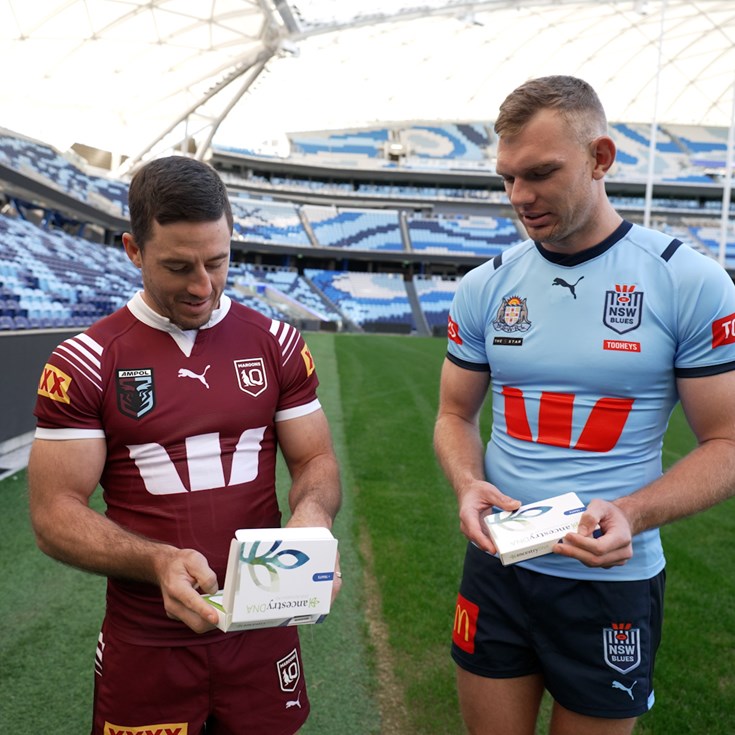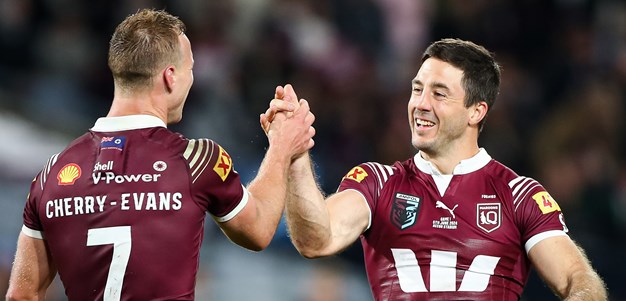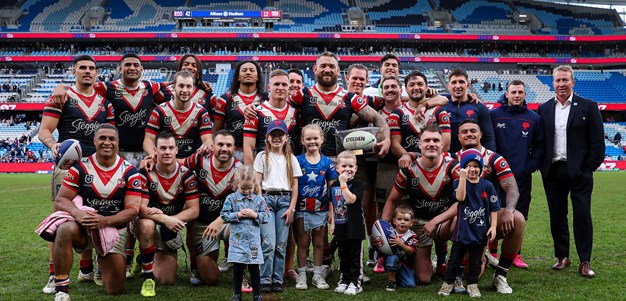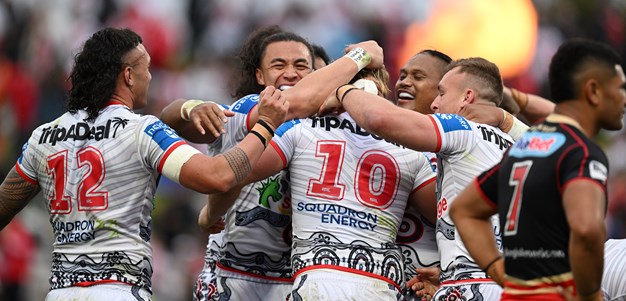As teams prepare for their first matches under new rules, NRL head of football Graham Annesley has declared further tweaks would be considered if needed to ensure increases to the speed of the game and time that the ball is in play.
The ARL Commission has introduced eight rule changes for the 2021 season aimed at minimising stoppages, increasing fatigue and creating unpredictably.
However, there have been suggestions that replacing scrums with a play-the-ball when the ball or ball carrier go into touch could actually slow the game down.
St George Illawarra captain Ben Hunt and former Melbourne and Sydney Roosters premiership-winning halfback Cooper Cronk have spoken out about the potential impact of the rule but Annesley said steps would be taken to ensure play restarts quickly.
"If we have a scrum, you have to wait for all the players to get there, the referee has to pack the scrum, and the ball has to be fed and come back out, so having a handover either 10 metres in [from the sideline], 20 metres in or in the centre of the field, in theory, should be quicker," Annesley said.
Why play-the-ball restarts have replaced scrums when ball goes into touch
"If we have to look at the process to make that faster then we will do that. If it is slowing down for any particular reason, like defensive lines getting set, then there are some levers we can pull to make that a bit quicker."
A number of other rule changes are intended to reduce stoppage time for penalties and scrums or ensure that when scrums are required they provide genuine attacking opportunities, including:
- Six-again to be called for 10-metre infringements instead of a penalty;
- A handover to be ordered when a player does not make a genuine attempt to play the ball correctly with their foot, and
- A penalty to be awarded if a player leaves the scrum before the referee calls "break".
“Everything we have done over the last few years has really been about minimising stoppages, increasing the amount of time the ball is in play, increasing the fatigue factor, trying to open up some spaces on the field and making the game more exciting and entertaining to watch,” Annesley said.
Tactical trainer stoppages a target
One of the most significant rule changes is the requirement of injured players to leave the field for two minutes if a trainer stops play.
"We’ve made it very clear that this was brought about because we felt it was too loose the other way," Annesley said.
"It had been taken advantage of in some cases and the objective is that the play shouldn’t stop unless there is a serious injury.
Injured players to be sidelined when play stopped by trainer
"We’ve got into this habit in recent years of every time a player is injured we stop the game. That is another stoppage and it can’t be used tactically.
"A team that is under pressure in defence can’t decide to stop the game for an injury unless the referee deems that the player is in the way or the referee deems that there is a serious injury."
Under the new rule, the injured player must be taken from the field for two minutes unless his team uses an interchange to replace him.
Players to be penalised for breaking from scrums early
"Unless it is a head injury, if the trainer calls for the game to be stopped and the referee stops the game, that player will have to go off the field for at least two minutes before they can rejoin play," Annesley said.
"If it is a HIA, they can be assessed on the field and they can resume but if it is for any other injury, then they can be interchanged or if they are continuing to play then the player has to go off for two minutes.
"He has to go around from wherever he comes off to the bench area and the interchange official will supervise him back onto the field after two minutes."
Why 40-metre field goals now worth two points
Two-point long-range field goals
The two-point field goal isn't expected to feature in most games but the Indigenous team were being urged to consider a 40-metre attempt when trailing 10-8 with minutes remaining in last Saturday night's All Stars match.
Instead, they ended up getting a penalty and kicking a penalty goal and the game finished in a 10-10 draw with the Maori All Stars as there was no extra time.
"I'm sure there will players practising it," Annesley said.
"I have spoken to a couple of coaches who said to me that if it is winding down towards half-time and they are in the right position on the field and they are probably not going to score a try just before the siren sounds they might give it a crack.
"Of course, the other time it is most likely to be used is if a team is two points down or one point down with full-time approaching.
"It just adds another element of surprise in the game.
The key player signings to watch in 2021
"At the moment, if you are two points behind there is nothing you can do except hope you either get a penalty kick or score a try but now there is another option.
"To kick a field goal from 40 metres out is not easy, it is a skill and very few players could actually do it – particularly under the pressure of defence.
"But it just opens up another option, and what we are trying to do with the rules is make the game less predictable."
The change to captain's challenge reviews in 2021
Good time to adapt
With the six-again rule and return to one referee introduced when the Telstra Premiership resumed last May after being suspended for 10 weeks due to the COVID-19 pandemic, coaches and players had little time to adapt to the changes.
However, they have now had an off-season to review the impact of the six-again call and the new rules announced last December.
Former Kangaroos forward and long-serving assistant coach David Fairleigh will help new NRL referees' boss Jared Maxwell to combat teams trying to take advantage of the rule changes.
Fairleigh, who played 246 matches for North Sydney, Newcastle and St Helens and made 15 Test appearances for Australia before turning to coaching, will provide an insight into the way coaches and players may seek to exploit the new rules.
Try decisions to be reviewed in background by Bunker
He has been on the coaching staff of North Sydney, Parramatta, Newcastle, the Warriors, Penrith and North Queensland before taking up a role with the NRL match officials last year.
"People who have come out of clubland as coaches are able to give a view about how clubs might interpret things and how they might try to utilise the rules," Annesley said
"There is nothing wrong with utilising the rules to your own advantage as long as you aren’t flouting the rules but certainly having those sort of people involved will help referees get a better feel for what is going to happen."






